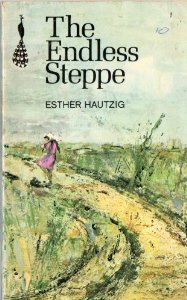
When I was scanning a few book blogs the other day, I came across Minaret (Leila Aboulela) and picked it up from the library a few days later. I was intrigued by the topic, it was fairly short (matches my current summer levels of concentration), and it fit in well with my current focus on reading more POC authors. So, I picked it up last weekend, and then finished it on Sunday evening. (Quick read indeed.)
Aboulela is a Sudanese author, and this fictional narrative traces the spiritual (and literal) journey of Najwa, a Sudanese woman whose family is caught up in a big corruption government scandal, leading to them living in forced exile in London.
It’s an interesting story, but for some reason, I wasn’t too taken with it. Was it the writing? (It’s written in a very simplistic manner, but I’m not sure why that was the case. The protagonist was not a simple person, and her life was not straight-forward. Perhaps the simple style is used as a foil to reflect the complexity of her life? Not sure.)
Anyway, few contractions, few complex sentence structures, and pretty bare-bones descriptions… Not usually a big fan of that style, but I kept reading… (The reviews were so awesome, I thought that I was missing something, and perhaps this would all clear up by the end of the book…)
As the reader follows Najwa’s journey, both geographical and otherwise, we learn that she is a middle-aged woman whose rather coddled lifestyle is changed overnight when she is forced to move to England in exile, and live a life of servanthood for the other Sudanese ex-pats who are more wealthy.
This come-down is hard to take at first (naturally), but as the book progresses, Najwa learns how to live this new life. It’s helped by her attraction to the Islamic faith, although she was secular whilst she was in Sudan.
As the book progresses, readers follow her as she becomes a more religious and more devout Muslim woman. Interestingly, she ends up by the close of the story as being much more religiously conservative than she was at the start of the book. I think other reviewers have loved this title as it shows a woman becoming more focused on becoming a strict Muslim, and perhaps this is more typically depicted as a male journey? Not sure, but a lot of great reviews were blurbed on the cover. However, I was not quite as taken for a number of reasons, really.
First, there were some obvious proofreading errors which someone should have caught before it went to print (e.g. repeated or missing words etc.). With so much electronic editing help that is available now, there are few excuses to let this go to print without revisions. It became annoying after a while and was a distraction from the plot. (The author also goes on and on and on about how much the protagonist loves Boney M’s music. OK. We get it. Sigh.)
Second, the protagonist has some strange relationships with people. At first, I put this down to her forced relocation and the new culture and general life disruption, but then, as the story progresses, she ends up falling in love (sort of) with a nineteen year old son of her boss’ family, a young man who is decades younger than she is and who is a lot more radicalized than she is. Of course, problems arise…
I don’t know. It all got a bit confusing with regard to who is who and how they fit into the structure, so that, at times, I just gave an impatient sigh and then checked with a heavy heart how many more pages until the end…
Add to that the fact that the novel plays with time, and you’ve got one lost reader.
So – it wasn’t that great a read for me in the end (in case you haven’t picked that up yet!). I think that some of the reviewers were tripping over themselves to like this book for politically correct reasons, because I ended up with quite a different opinion at the end.
So, just an OK read for me in the end. Meh.


